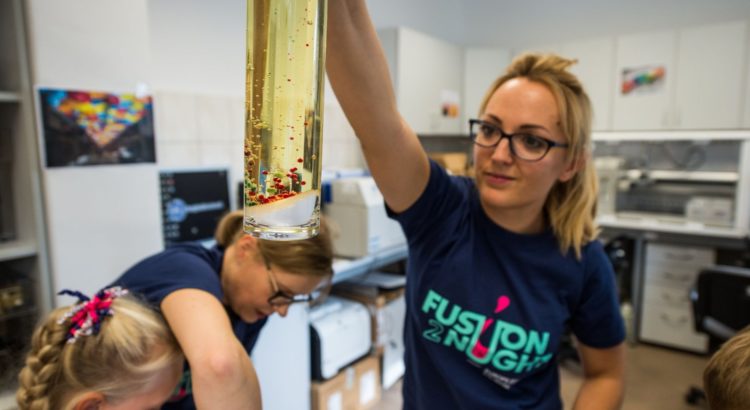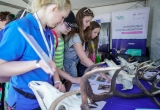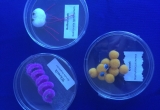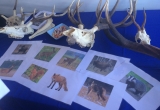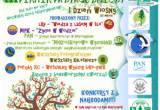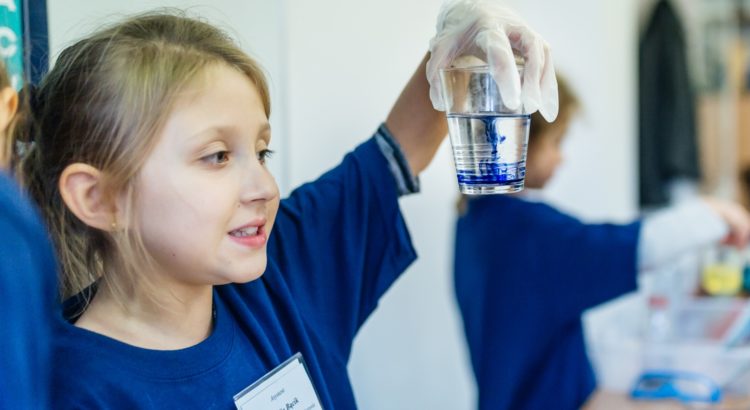200 researchers, 12 hours of experimenting together and several thousands of guests who think science matters. The next, 4th edition, of European Researchers’ Night organised by the Institute of Animal Reproduction and Food Research PAS has just concluded. (więcej…)
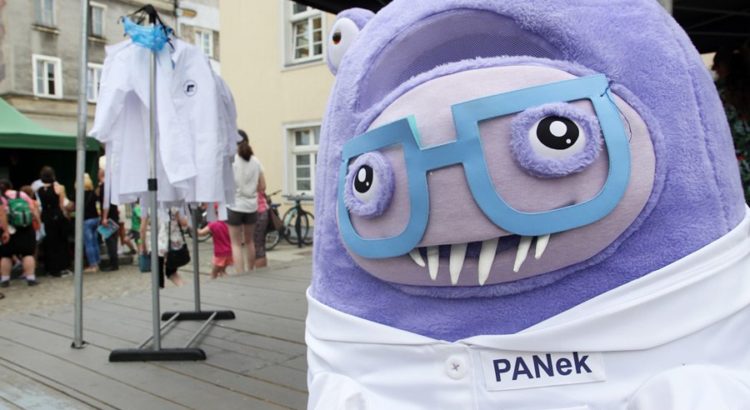
Picnic of Polish Academy of Sciences [photo and video]
3rd edition of ”SCIENCE is ART!” Family Picnic of the Polish Academy of Sciences has come to an end. Science shows, experiments, workshops prepared by scientists from 7 Institutes of the Polish Academy of Sciences, supported by researchers from Warsaw University and Poznań University of Life Sciences attracted a record-breaking number of attendees. (więcej…)
Science Picnic of Polish Radio and Copernicus Science Centre
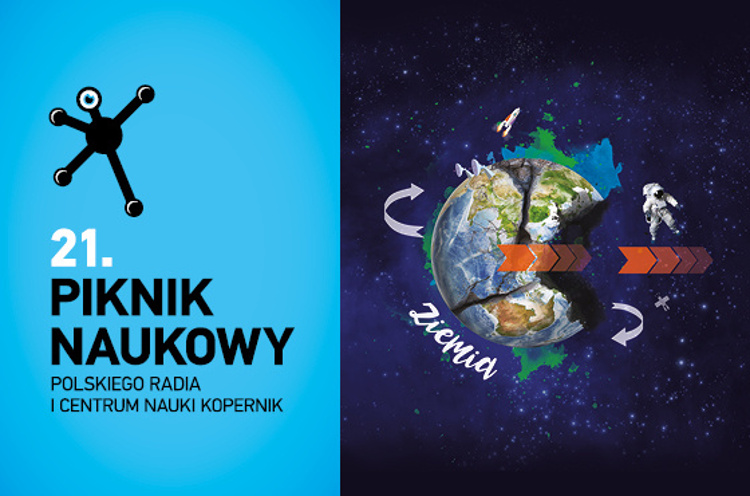
As every year, Institute’s researchers took part in the Science Picnic of the Polish Radio and Copernicus Science Centre in Warsaw. The main theme of the 21st edition of the Picnic was the EARTH.
Guests to the edutaining activities organized at the stand of the Institute of Animal Reproduction and Food Research PAS could i.a. discover the diversified world of microorganisms, understand their role in the nature, and try their hands at creating models of beneficial and pathogenic bacteria with the use of textiles. During the interactive science show “Who was here? Meet the residents of forests” we could admire the antler of red deer, check its age and, at the same time, gain knowledge on the behavior of this wild animal. Next, everyone could learn how to distinguish animals comparing traces they leave.
Workshops prepared by the Institute’s researchers were visited by a few thousand people, with the kids having made over 7 hundred bacteria models and over 500 microscope preparations.
We wish to express our gratitude to all scientists who engaged in the Picnic and shared their passion and knowledge with the guests.
„SCIENCE is ART!” Family Picnic of the Polish Academy of Sciences
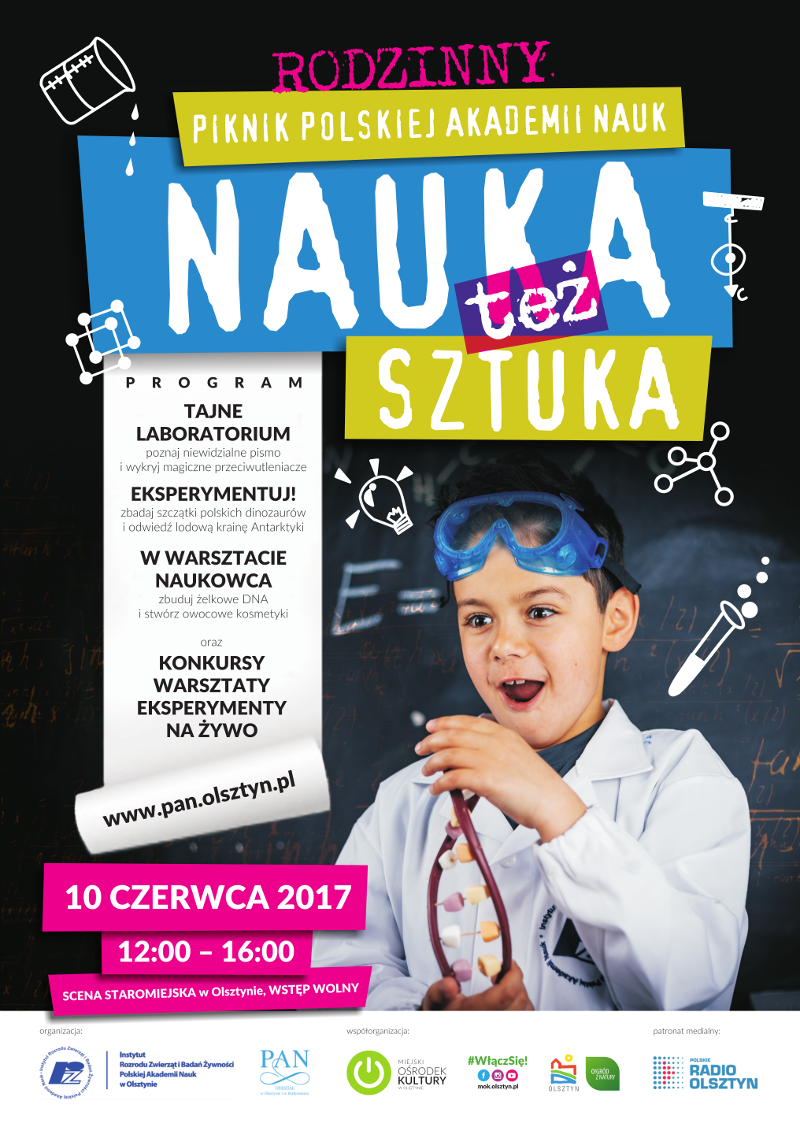
Writing secret messages with invisible ink, identifying magical antioxidants in drinks, studying fossils of Polish dinosaurs, experimenting in chemical laboratories, designing jelly DNA, composing cosmetics with lyophilized fruits, building gigantic bacteria, and learning the technique of seeing in the dark. These and many other edutaining activities will await guests of the “SCIENCE is ART!” Family Picnic of the Polish Academy of Sciences on June 10th in Olsztyn’s City Centre.
This is the 3rd edition of the Science Picnic organized by the Institute of Animal Reproduction and Food Research PAS in Olsztyn together with the Cultural Centre. Popular science shows, workshops, experiments and contests are a unique occasion to get an insight into the work of researchers, try our hands at scientific challenges and get inspired to explore the phenomena surrounding us every day. This year the Picnic will offer even more attractions than in the past editions. Organizers invited to Olsztyn partner scientists from other units of the Polish Academy of Science, e.g. Institute of Biochemistry and Biophysics, Institute of Organic Chemistry or Institute of Paleology, who will familiarize us with the Polish research in Antarctica, examine 230 million years old fossils, and teach us how to walk on water. Fascinating science demos will also be prepared by researchers from Warsaw University and Poznań University of Life Sciences, where we will experiment with the food products we use on daily basis and learn the troublesome art of finding a way in the forest.
We won’t forget about “bestsellers” to be ran by scientists from the Institute of Animal Reproduction and Food Research PAS. Organizers will prepare i.a. workshops on composing cosmetics with lyophilized fruits, contests examining the efficiency of our senses, experiments detecting pro-health antioxidants in drinks, workshops of building DNA with sweet jellies and competition in finding gluten in everyday food products.
Family Picnic of the Polish Academy of Sciences will start at 12:00 at the heart of Olsztyn’s Old Town and finish at 16:00. Free of charge.
Organizer: Institute of Animal Reproduction and Food Research PAS in Olsztyn
Co- organizer: Cultural Centre
Partner: Division of Polish Academy of Sciences in Olsztyn and Białystok headquartered in Olsztyn
Join us on Facebook
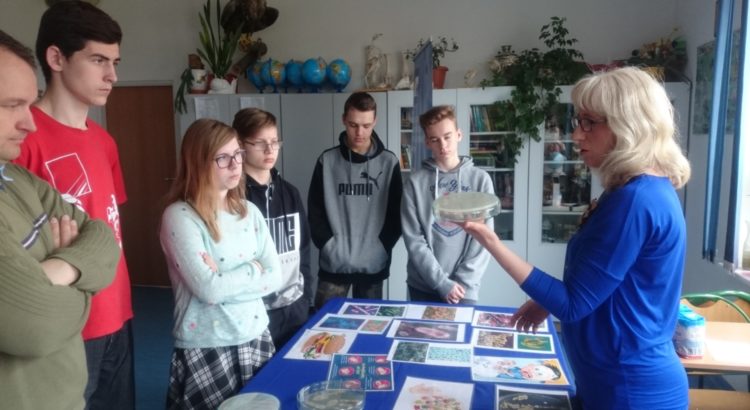
Science Picnic in Mikołajki
Pupils from the the Social School Complex in Mikołajki celebrated the 1st day of spring together with the scientists from Institute’s Research Station in Popielno.
Our researchers familiarized them with i.a. the world of microorganisms, which could be observed both under the microscope and on own hands, learning that each of us has a unique bacterial microflora. In addition, using anatomy models, students gained knowledge on the structure of the reproductive system and disorders that affect it.
The Picnic was also joined by scientists from the Hydrobiology Station of the Nencki PAS Institute.
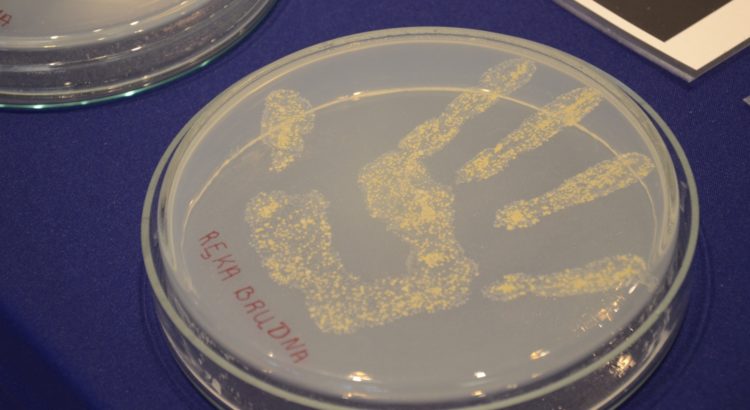
Science-driven winter break
For many of us winter break is finally the chance to spend more time on cultivating our passions. Those fascinated with experimenting, creating and exploring scientific achievements we use in everyday life could take part in a series eduatining acivities prepared by the Institute, following the „hands-on” scheme. (więcej…)
New cooperation opportunities
During the visit in Hungary and Slovenia, Dr. Radosław Kowalski along with his research team – Dr. Beata Cejko, Sylwia Judycka and Michał Blitek – conducted a trial of air spawning of marble trout (Salmo marmoratus), thanks to Dušan Jesenšek a manager of a Slovenian fish hatchery in Tolmin (Ribiška družina Tolmin). (więcej…)
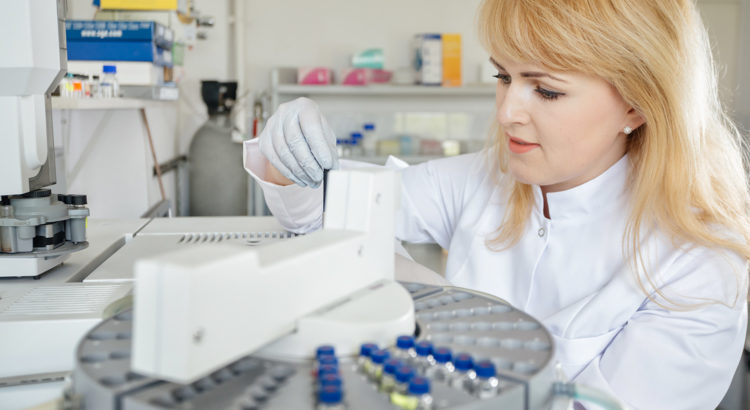
Prebiotics to alleviatie celiac disease
PhD student from the Institute of Animal Reproduction and Food Research PAS in Olsztyn investigates the influence of prebiotics-enriched gluten-free diet on alleviating harmful effects of celiac disease in children. The study will be aided by the funds obtained in the National Science Centre PRELUDIUM call. (więcej…)
